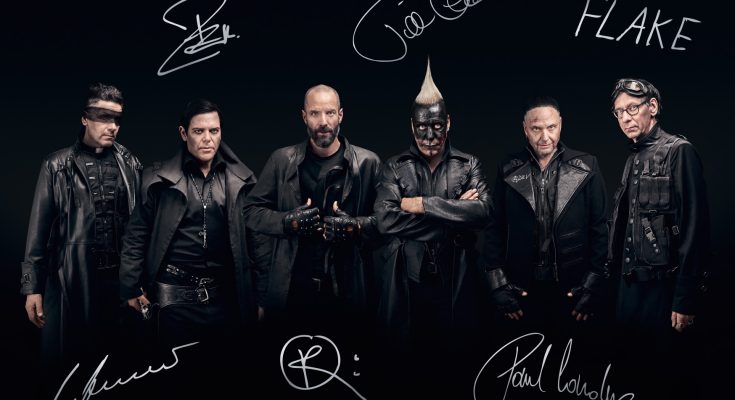Rammstein is a band that has captured the imagination of fans across the world in a way that very few groups ever manage to achieve. Known for their heavy industrial sound, powerful live shows, and unapologetically bold artistic direction, the band has become one of Germany’s most successful musical exports and an enduring presence in the global rock and metal scenes. For anyone curious about Rammstein, there are many layers to uncover: their history, their music, their performances, their controversies, and their lasting impact on culture. Everything you need to know about Rammstein is tied up in a story that combines music, theater, art, politics, and spectacle. The journey of Rammstein began in Berlin in the mid-1990s, a period of incredible change not only for Germany but for the world. The fall of the Berlin Wall had left the country in a state of cultural experimentation and transition, and out of this backdrop, a new form of heavy music began to emerge. Founded in 1994, Rammstein consisted of six members who have remained together ever since: Till Lindemann on vocals, Richard Z. Kruspe and Paul Landers on guitars, Oliver Riedel on bass, Christoph Schneider on drums, and Christian “Flake” Lorenz on keyboards. This lineup has been remarkably stable compared to many other bands, and their unity has often been cited as one of the reasons for their long-lasting success.
Rammstein’s music is often categorized as industrial metal, but their sound has always incorporated more than just one style. Heavy guitar riffs, electronic elements, pounding drums, and Lindemann’s commanding baritone voice created a sonic signature that was immediately recognizable. Their lyrics, written almost exclusively in German, were daring and often controversial, exploring themes of love, politics, sexuality, violence, and human nature with a mix of poetry, irony, and provocation. For many non-German speakers, the sound and emotion carried more weight than the actual words, though translations often revealed the depth of their storytelling and satire. Their debut album Herzeleid was released in 1995, introducing the world to their unique brand of metal with tracks like “Seemann” and “Du Riechst So Gut.” But it was their second album, Sehnsucht (1997), that truly launched them onto the international stage. Featuring the global hit “Du Hast,” which became a staple in rock and metal playlists worldwide, the album cemented Rammstein’s reputation as a band to watch. “Du Hast,” with its hypnotic riff and play on German wordplay, brought the band exposure in markets like the United States, where their distinct style felt both alien and refreshing.
From the beginning, Rammstein has always been about more than just the music. Their live performances have become the stuff of legend, featuring elaborate pyrotechnics, flame-throwing guitars, dramatic costumes, and theatrical narratives. Till Lindemann, who studied as a pyrotechnician before becoming a rock star, has often set himself on fire on stage, walked through flame tunnels, or wielded flamethrowers as part of the act. The band’s shows are as much a theatrical spectacle as they are concerts, often blurring the line between music, performance art, and provocation. Fans leave not only having heard their favorite songs but having experienced an unforgettable sensory assault. Their stagecraft has been imitated but never equaled, with many critics calling Rammstein the best live act in the world.
Of course, with such bold artistry comes controversy. Rammstein has often been accused of crossing the line with their visuals, lyrics, and imagery. Their use of provocative themes, from sadomasochism to political symbolism, has at times sparked outrage, but the band has always maintained that their art is open to interpretation. Rather than promoting dangerous ideologies, they often satirize or critique them, turning a mirror on society. For instance, their music video for “Mein Teil,” which drew inspiration from a real-life case of cannibalism in Germany, shocked audiences worldwide but was intended as a commentary on human obsession and desire. Similarly, their use of military-style uniforms or controversial historical imagery has led to misunderstandings, though the band has consistently distanced itself from extremist ideologies, emphasizing their role as provocateurs, not propagandists.
Beyond their controversial reputation, what makes Rammstein fascinating is their ability to remain authentic. They have always performed primarily in German, even when many fans and record executives encouraged them to switch to English to gain greater international appeal. Instead, they trusted that their energy, passion, and stage presence would transcend language barriers—and they were right. Their global fanbase continues to grow, with fans from South America to Asia singing along in German at sold-out stadiums. This insistence on staying true to their cultural roots has become part of their identity, making them not just musicians but cultural ambassadors for modern German music.
The band’s discography is filled with albums that demonstrate their evolution while remaining true to their core sound. After Sehnsucht, they released Mutter in 2001, which is often hailed as one of their greatest works, featuring songs like “Sonne,” “Ich Will,” and “Feuer Frei!” These tracks became staples of their live shows and showcased their ability to balance melody with aggression. Later albums like Reise, Reise (2004) and Rosenrot (2005) expanded their musical palette, experimenting with themes of travel, love, and death. Their 2009 album Liebe Ist Für Alle Da pushed boundaries further, even leading to censorship in some countries due to explicit content. After a decade-long wait, their untitled 2019 album was released, reigniting excitement among fans and proving that Rammstein had lost none of their fire. Songs like “Deutschland” tackled the complex relationship between Germans and their history, once again sparking debate and praise in equal measure.
One of the unique aspects of Rammstein is their ability to balance seriousness with humor. While their music and performances often deal with dark themes, there is a tongue-in-cheek quality to much of their work. Their playful side can be seen in songs like “Amerika,” which satirizes global consumerism and American cultural dominance, or “Pussy,” which combines outrageous lyrics with a music video that parodied adult entertainment. This balance of darkness and irony gives their work a depth that keeps fans engaged and critics intrigued.
Over the years, Rammstein has built one of the most loyal fanbases in the world. Their concerts routinely sell out within hours, and their tours are global events that attract fans from every corner of the world. They have become not just a band but a cultural phenomenon, inspiring countless cover bands, tribute acts, and fan art. Their influence can be felt in both the metal and industrial genres, as well as in broader popular culture, from movie soundtracks to fashion.
Another remarkable thing about Rammstein is their longevity. Many bands formed in the 1990s have broken up, changed members, or lost relevance, but Rammstein has remained consistent for over three decades. Their ability to adapt without losing their identity, to provoke without becoming stale, and to entertain without compromise has made them one of the few bands that truly transcend generations. Parents who discovered Rammstein in the 1990s are now bringing their children to shows, creating a multi-generational fanbase that ensures their legacy will endure.
As of today, Rammstein continues to tour and release music, showing no signs of slowing down. Their performances remain bigger and more spectacular than ever, with state-of-the-art stage technology and pyrotechnics that push the limits of what a live show can be. They have proven time and again that their art is not just about sound, but about creating an unforgettable emotional and visual experience. For many fans, attending a Rammstein concert is not just entertainment but a life event, something to remember forever.
If you are new to Rammstein, diving into their world can feel overwhelming, but it is also incredibly rewarding. Start with their biggest hits like “Du Hast,” “Sonne,” and “Ich Will,” then explore deeper cuts from their albums to discover the range of their artistry. Watch live concert recordings to truly understand why they are called one of the greatest live acts in the world. Pay attention not only to the music but to the stories they tell, the imagery they use, and the themes they explore. Rammstein is a band that invites interpretation, discussion, and debate.
What keeps them so captivating after all these years is the fact that they are never predictable. Each new album, each new tour, feels like an event. Whether you love them for their music, their theatrical performances, or their ability to stir controversy, there is always something new to uncover about Rammstein. They are more than a band—they are an ongoing conversation between artist and audience, between shock and beauty, between provocation and sincerity.
Now that you’ve had a closer look into everything you need to know about Rammstein, the next step is to dive deeper yourself. Explore their albums, watch their performances, and experience the intensity they bring to their craft. But most importantly, join the conversation. What do you think about Rammstein’s music, their performances, or their legacy? Do you see them as provocateurs, visionaries, or simply entertainers who know how to push boundaries? Everyone has their own perspective on what makes Rammstein so unique, and your voice is part of what keeps the discussion alive. Feel free to share your thoughts, opinions, and even your favorite Rammstein memories in the comments—because part of what makes following this band so exciting is hearing how others have experienced their music and performances.



